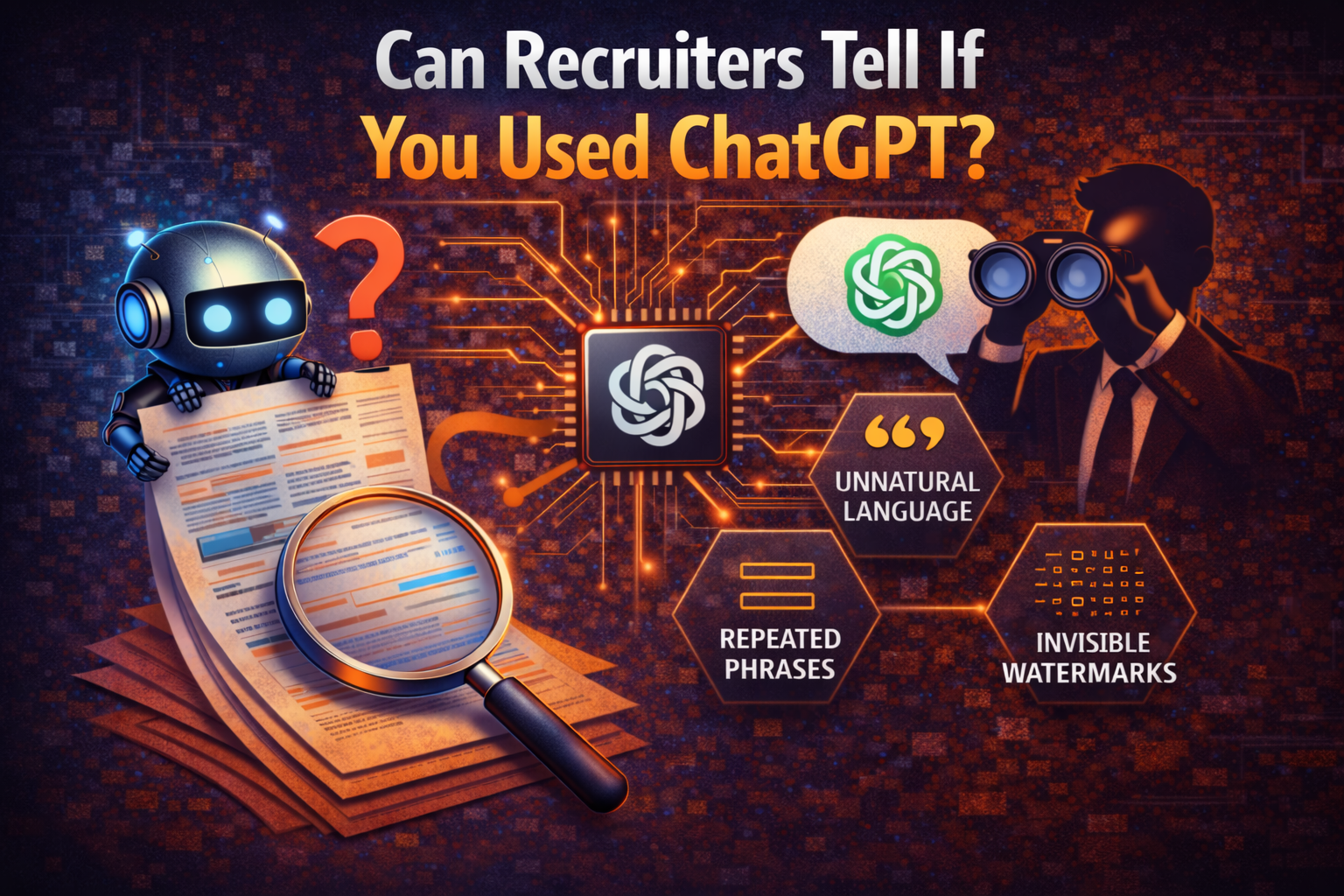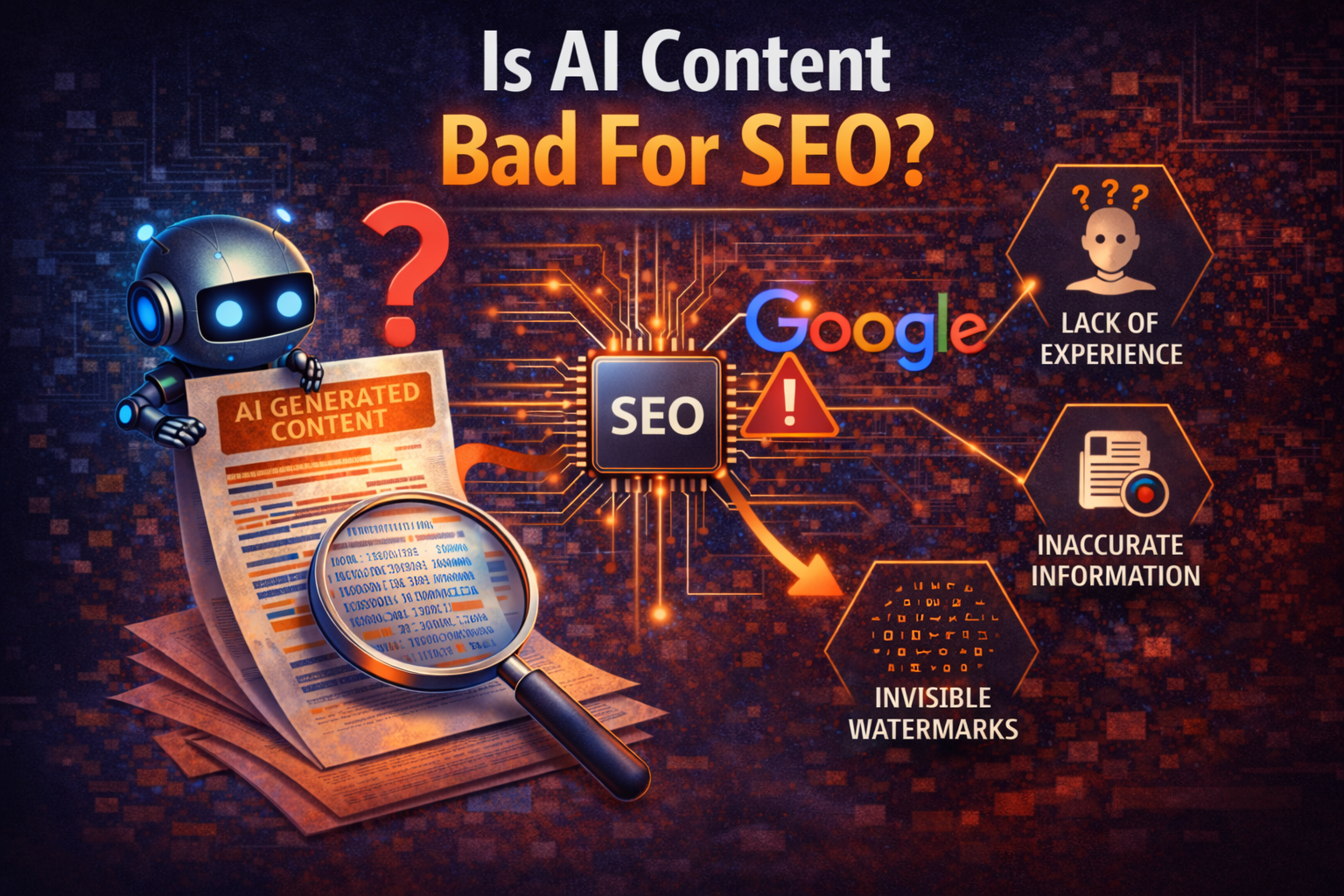Wie man ChatGPT-Wasserzeichen erkennt: Eine vollständige Erkennungsanleitung
Erfahren Sie, wie Sie unsichtbare ChatGPT-Wasserzeichen in KI-generiertem Text erkennen. Entdecken Sie die versteckten Zeichen mit Nullbreite und Formatierungsmarkierungen, die KI-Modelle in ihre Ausgaben einbetten.

Einführung
Haben Sie sich jemals gefragt, ob ChatGPT und andere KI-Sprachmodelle ihren erzeugten Text heimlich markieren? Die Antwort lautet ja – und diese unsichtbaren Wasserzeichen sind häufiger, als Sie denken. In diesem umfassenden Leitfaden zeigen wir Ihnen genau, wie Sie ChatGPT-Wasserzeichen sehen und unsichtbare KI-Markierungen in Ihrem Text erkennen können.
Ob Sie ein Student sind, der seinen Aufsatz überprüft, ein Entwickler, der Code debuggt, oder einfach nur neugierig auf KI-Wasserzeichentechnologie sind – dieser Leitfaden wird Ihnen praktische Methoden beibringen, um diese versteckten Zeichen zu erkennen.
Was sind ChatGPT-Wasserzeichen?
ChatGPT-Wasserzeichen sind unsichtbare Zeichen, die KI-Modelle in ihren erzeugten Text einbetten. Diese Markierungen dienen mehreren Zwecken:
- KI-Erkennung: Helfen KI-Erkennungstools, maschinell erstellte Inhalte zu identifizieren
- Nutzungsverfolgung: Ermöglichen KI-Unternehmen, zu verfolgen, wie ihre Ausgaben verwendet werden
- Zuordnung: Bieten eine Möglichkeit, Inhalte auf KI-Erzeugung zurückzuverfolgen
- Urheberrechtsschutz: Markieren proprietäre KI-generierte Inhalte
Die häufigsten Arten unsichtbarer Zeichen, die in ChatGPT-Wasserzeichen verwendet werden, umfassen:
- Nullbreite-Leerzeichen (ZWSP) - Unicode: U+200B
- Nullbreite-Nicht-Verbinder (ZWNJ) - Unicode: U+200C
- Nullbreite-Verbinder (ZWJ) - Unicode: U+200D
- Weiches Trennzeichen - Unicode: U+00AD
- Wortverbinder - Unicode: U+2060
Diese Zeichen sind für das menschliche Auge völlig unsichtbar, können jedoch von spezialisierten Tools und KI-Erkennungssoftware erkannt werden.
Warum es wichtig ist: Die Auswirkungen versteckter Wasserzeichen
Das Verständnis, wie man ChatGPT-Wasserzeichen erkennt, ist entscheidend, da diese unsichtbaren Zeichen verursachen können:
Technische Probleme
- Code-Fehler: Nullbreite-Zeichen in Programmiercode können Compiler und Linter zum Scheitern bringen
- Git-Diff-Probleme: Unsichtbare Zeichen erschweren die Versionskontrolle
- Datenbankfehler: Spezielle Zeichen können Datenbankabfragen stören
- Kopier-Einfügen-Probleme: Formatierungsprobleme beim Übertragen von Text zwischen Anwendungen
Akademische Bedenken
- KI-Erkennung: Wasserzeichen helfen Erkennungstools, KI-geschriebene Aufsätze zu identifizieren
- Plagiats-Kennzeichnungen: Einige Systeme können wasserzeichenmarkierten Text kennzeichnen
- Akademische Integrität: Das Verständnis von Wasserzeichen hilft, Transparenz zu wahren
Datenschutzprobleme
- Inhaltsverfolgung: Wasserzeichen können KI-Nutzung in professionellen Umgebungen offenlegen
- Zuordnung: Versteckte Markierungen können die Herkunft von Inhalten ohne Ihr Wissen verfolgen
Methode 1: Verwendung von Online-Erkennungstools
Der einfachste Weg, ChatGPT-Wasserzeichen zu sehen, ist die Verwendung spezialisierter Online-Erkennungstools. So geht's:
GPT Watermark Remover (Kostenloses Tool)
- Besuchen Sie GPT Watermark Remover
- Fügen Sie Ihren Text in den Erkennungsbereich ein
- Klicken Sie auf "Wasserzeichen erkennen"
- Sehen Sie sich eine detaillierte Analyse an, die zeigt:
- Anzahl der gefundenen unsichtbaren Zeichen
- Arten der erkannten Wasserzeichen
- Genaue Positionen versteckter Zeichen
- Visuelle Hervorhebung problematischer Bereiche
Warum das funktioniert: Das Tool scannt Text nach unsichtbaren Unicode-Zeichen und zeigt sie in einem für Menschen lesbaren Format an.
Andere Erkennungsmethoden
Sie können auch verwenden:
- Texteditoren mit "Sonderzeichen anzeigen"-Funktionen
- Browser-Entwicklertools zum Inspizieren von Zeichencodes
- Python-Skripte mit Unicode-Erkennungsbibliotheken
Methode 2: Manuelle Erkennungstechniken
Wenn Sie ChatGPT-Wasserzeichen manuell erkennen möchten, probieren Sie diese Techniken aus:
Kopier-Einfügen-Test
- Kopieren Sie Ihren Text in einen einfachen Texteditor (Notepad, TextEdit)
- Achten Sie auf ungewöhnliche Abstände oder Zeilenumbrüche
- Versuchen Sie, Text auszuwählen – unsichtbare Zeichen können als Auswahlücken erscheinen
Zeichenzahl-Vergleich
- Zählen Sie die Zeichen in Ihrem Text
- Überprüfen Sie die Bytegröße
- Wenn die Bytegröße größer als die Zeichenzahl ist, sind unsichtbare Zeichen vorhanden
Suchen-und-Ersetzen-Methode
- Öffnen Sie Ihren Text in Microsoft Word oder Google Docs
- Verwenden Sie Suchen & Ersetzen (Strg+H / Cmd+H)
- Suchen Sie nach bestimmten Unicode-Zeichen:
- Suchen nach:
^u200B(ZWSP in Word) - Suchen nach:
^u200C(ZWNJ in Word)
- Suchen nach:
- Durch nichts ersetzen, um sie zu entfernen
Methode 3: Entwicklertools zur ChatGPT-Wasserzeichen-Erkennung
Für Entwickler und technische Benutzer gibt es hier fortgeschrittene Erkennungsmethoden:
Verwendung von Browser-DevTools
// Fügen Sie dies in die Browser-Konsole ein
const text = "Ihr ChatGPT-Text hier";
const invisibleChars = /[\u200B-\u200D\uFEFF\u00AD\u2060]/g;
const matches = text.match(invisibleChars);
console.log("Unsichtbare Zeichen gefunden:", matches ? matches.length : 0);
console.log("Zeichentypen:", new Set(matches));
Python-Erkennungsskript
import re
def detect_watermarks(text):
# Muster für häufige unsichtbare Zeichen
pattern = r'[\u200B-\u200D\uFEFF\u00AD\u2060]'
matches = re.findall(pattern, text)
print(f"Wasserzeichen gefunden: {len(matches)}")
for char in set(matches):
count = matches.count(char)
print(f" {repr(char)}: {count} Vorkommen")
return len(matches) > 0
# Verwendung
text = "Ihr ChatGPT-Text hier"
has_watermarks = detect_watermarks(text)
Node.js-Erkennung
function detectChatGPTWatermarks(text) {
const invisibleChars = /[\u200B-\u200D\uFEFF\u00AD\u2060]/g;
const found = [];
let match;
while ((match = invisibleChars.exec(text)) !== null) {
found.push({
char: match[0],
position: match.index,
unicode: match[0].charCodeAt(0).toString(16)
});
}
return found;
}
Wie KI-Wasserzeichen funktionieren: Die technischen Details
Das Verständnis der Technologie hinter ChatGPT-Wasserzeichen hilft Ihnen, sie effektiver zu erkennen.
Kodierungsmethoden
KI-Modelle verwenden mehrere Kodierungstechniken:
- Musterbasierte Kodierung: Wasserzeichen folgen bestimmten Mustern
- Positionsbasiert: Zeichen werden an strategischen Positionen platziert
- Frequenzbasiert: Bestimmte Zeichen erscheinen häufiger
- Kombination: Mehrere unsichtbare Zeichen erzeugen einzigartige Signaturen
Erkennungsresistenz
Einige Wasserzeichen sind so konzipiert, dass sie schwer zu erkennen sind:
- Zufällige Platzierungsmuster
- Gemischte Zeichentypen
- Niedrigdichte-Kodierung (weniger Zeichen)
- Kontextbewusste Platzierung
Häufig gestellte Fragen zu ChatGPT-Wasserzeichen
Hat jede ChatGPT-Ausgabe Wasserzeichen?
Nicht unbedingt. Wasserzeichen hängen ab von:
- Der spezifischen KI-Modellversion
- Benutzereinstellungen und Konfigurationen
- API vs. Weboberflächen-Nutzung
- Datenschutzeinstellungen
Kann ich ChatGPT-Wasserzeichen entfernen?
Ja, Sie können unsichtbare Wasserzeichen entfernen mit:
- GPT Watermark Remover (sofort, kostenlos, browserbasiert)
- Textbereinigungstools
- Manuellen Suchen-und-Ersetzen-Methoden
- Code-basierten Bereinigungsskripten
Wird das Entfernen von Wasserzeichen erkannt?
Im Allgemeinen nein, aber beachten Sie:
- Ethische Implikationen: Das Entfernen von Wasserzeichen kann gegen Nutzungsbedingungen verstoßen
- Akademische Integrität: Zitieren Sie KI-Unterstützung immer ordnungsgemäß
- Rechtliche Überlegungen: Respektieren Sie Urheberrechte und Nutzungsvereinbarungen
Verwenden alle KI-Modelle Wasserzeichen?
Verschiedene KI-Modelle haben unterschiedliche Wasserzeichenansätze:
- ChatGPT: Verwendet verschiedene unsichtbare Zeichen
- Google Gemini: Kann unterschiedliche Kodierungsmethoden verwenden
- Claude: Hat sein eigenes Wasserzeichensystem
- Open-Source-Modelle: Enthalten oft keine Wasserzeichen
Best Practices für den Umgang mit KI-Wasserzeichen
Für Studenten
- Zitieren Sie immer die KI-Nutzung in akademischen Arbeiten
- Verwenden Sie Erkennungstools, um Wasserzeichen zu verstehen
- Befolgen Sie Richtlinien zur akademischen Integrität
- Fragen Sie Professoren nach Richtlinien zur KI-Nutzung
Für Entwickler
- Bereinigen Sie Code, bevor Sie ihn in die Versionskontrolle übernehmen
- Führen Sie Linter aus, um unsichtbare Zeichen zu erkennen
- Verwenden Sie Wasserzeichen-Erkennung in CI/CD-Pipelines
- Dokumentieren Sie KI-Unterstützung in Code-Kommentaren
Für Content-Ersteller
- Überprüfen Sie Inhalte, bevor Sie sie veröffentlichen
- Wahren Sie Transparenz über KI-Nutzung
- Entfernen Sie technische Artefakte, die Probleme verursachen könnten
- Bewahren Sie Originalversionen als Referenz auf
Fazit
Zu wissen, wie man ChatGPT-Wasserzeichen erkennt, ist eine wesentliche Fähigkeit im Zeitalter KI-generierter Inhalte. Ob Sie unsichtbare Zeichen aus technischen Gründen, aus Gründen der akademischen Integrität oder aus Datenschutzgründen erkennen – die in diesem Leitfaden beschriebenen Methoden helfen Ihnen, diese versteckten Markierungen zu identifizieren und zu verstehen.
Denken Sie daran:
- ✅ Verwenden Sie zuverlässige Erkennungstools wie GPT Watermark Remover
- ✅ Verstehen Sie die ethischen Implikationen der Wasserzeichenentfernung
- ✅ Wahren Sie immer Transparenz über KI-Nutzung
- ✅ Befolgen Sie akademische und professionelle Richtlinien
Probieren Sie unser kostenloses Erkennungstool aus
Bereit, Ihren Text auf ChatGPT-Wasserzeichen zu überprüfen? Verwenden Sie unser kostenloses, browserbasiertes Erkennungstool:
👉 ChatGPT-Wasserzeichen jetzt erkennen
Funktionen:
- Sofortige Erkennung unsichtbarer Zeichen
- Detaillierte Analyse und Visualisierung
- Kostenlos zu verwenden, keine Registrierung erforderlich
- 100% datenschutzorientiert (alle Verarbeitung im Browser)
- Unterstützung für Word- und Pages-Dokumente
Verwandte Artikel:
- Wie man ChatGPT-Wasserzeichen erkennt
- Unsichtbare Zeichen in ChatGPT-Text
- Wie man ChatGPT-Wasserzeichen entfernt
Haben Sie Fragen? Schauen Sie sich unsere FAQ an oder probieren Sie das Erkennungstool jetzt aus.
Bereit, KI-Wasserzeichen zu entfernen?
Probieren Sie unser kostenloses KI-Wasserzeichen-Entfernungstool aus. Erkennen und bereinigen Sie unsichtbare Zeichen aus Ihrem Text und Dokumenten in Sekunden.
GPT-Wasserzeichen-Entferner testenEmpfohlene Artikel

KI-Inhaltserkennung: Der vollständige Leitfaden für 2026
Verstehen Sie KI-Erkennung 2026: Wie KI-Detektoren funktionieren, warum sie Fehler machen und praktische Strategien für authentische Inhalte gemäß DSGVO-Standards.

Können Personaler erkennen, dass Sie ChatGPT verwendet haben? Was Bewerber 2026 wissen müssen
Erfahren Sie, wie Recruiter und HR-Tools KI-generierte Bewerbungen erkennen. Verstehen Sie unsichtbare Wasserzeichen, Erkennungsmethoden und wie Sie KI-Tools verantwortungsvoll nutzen.

Ist KI-Content schlecht für SEO? Was Google wirklich sagt (Und was der EU AI Act bedeutet)
Schadet KI-Content Ihrem SEO-Ranking? Googles offizielle Position, EU AI Act Anforderungen und versteckte Wasserzeichen-Probleme erklärt.